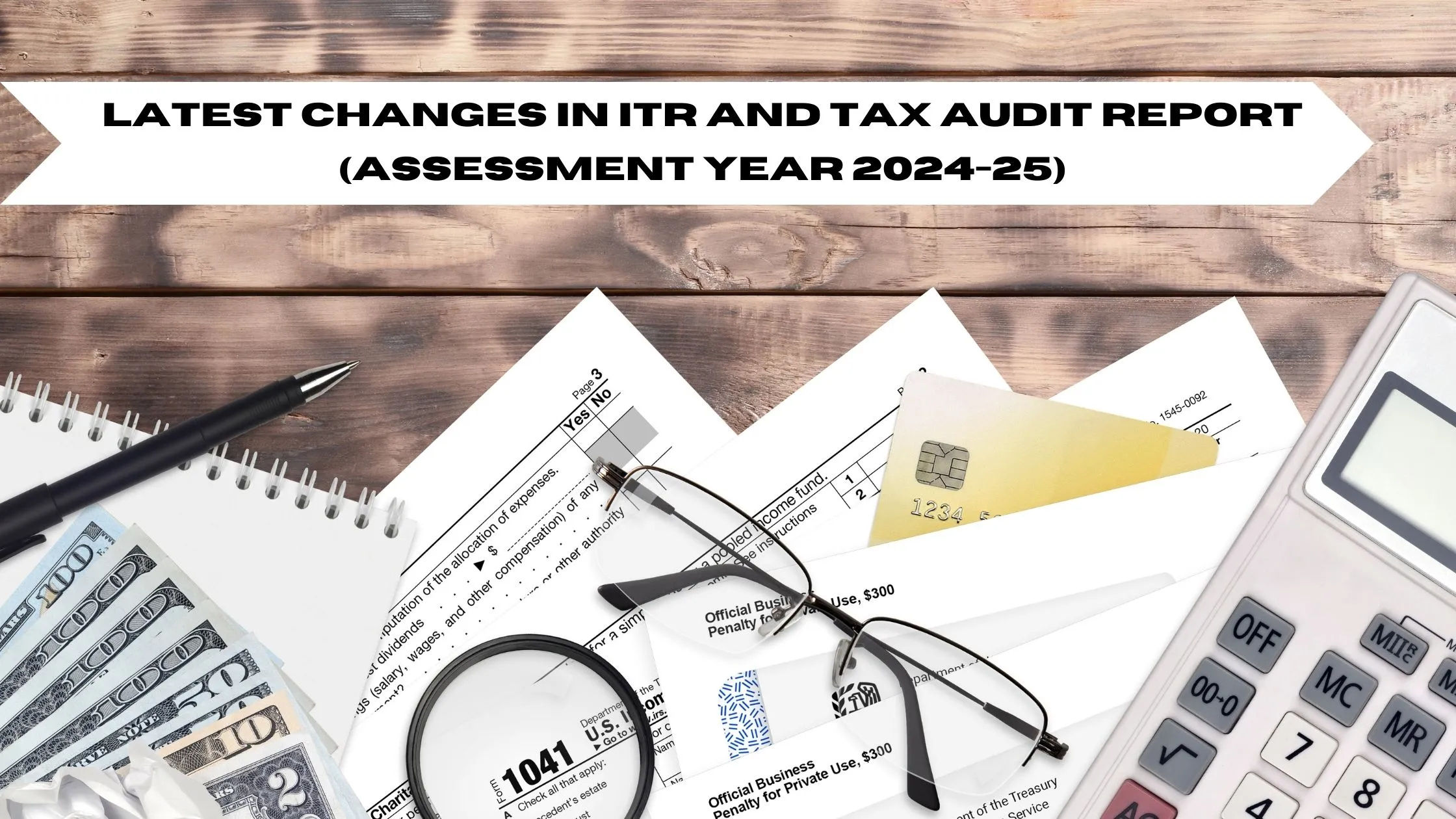Latest Changes in ITR and Tax Audit Report: Assessment Year 2024-25

As the ITR and audit season approaches, tax professionals and taxpayers are on their toes to get their returns filed and audits completed. At the same time, it is important to understand the changes in ITR forms and tax audit reports to ensure accuracy in tax filings. Let’s uncover the changes this year in the tax forms for Assessment Year 2024-25 (Financial Year 2023-24).
- Declaration of Tax Regime
The Income Tax Act, 1961 allows two tax regimes to the taxpayers i.e., the old tax regime and the new tax regime with the new one being the default regime from this year. In case you are filing ITR-1, you can select your tax regime in the ITR form itself. In the case of ITR-4, you need to file a separate Form 10-IEA to opt out of the new tax regime. Further, a new column is added in the new ITR Forms 1 and 4 in ‘Part-C Deductions and Taxable Total Income’ to allow claiming of deduction under Section 80CCH for amounts contributed in the Agni veer Corpus Fund.
- Capital Gains Account Scheme
In case you are filing ITR Forms 2, 3, 5 and 6, you are required to provide exhaustive information relating to the Capital Gains Account Scheme as compared to the previous year’s forms. This also includes the deposit date, IFSC and account number. Earlier, only the deposited amount was necessary.
- Receipt in Cash Column
Another change in ITR for AY 2024-25 is the requirement to disclose the mode of receipt of payments in ITR-4. The ‘Receipt in Cash’ column has been added in the ITR to allow the claiming of an enhanced turnover limit.
- Legal Entity Identifier Requirement
ITR Forms 2, 3, 5 and 6 require a Legal Entity Identifier (LEI) which is a 20-character alpha-numeric code. It is used to identify the parties engaged in the international financial transactions. Taxpayers are mandatorily required to provide the LEI number when they claim a refund amounting to Rs. 50 crores or more. This will help increase traceability and transparency in high value financial transactions, promote financial integrity and prevent any fraudulent activities.
- UDIN in ITR-6
Another change in ITR form is for the companies that are required to file their returns in Form ITR-6. They are now required to include the acknowledgement numbers and Unique Document Identification Number (UDIN) for the tax audit report as per Section 44AB and the transfer pricing report under Section 92E.
- Political Party Donations
Details regarding the contributions made to the political parties shall be disclosed in the new Schedule 80GGC that is applicable in the ITR Forms 2, 3, 5 and 6. The details include the amount of contribution, date of contribution, mode of contribution, eligible amount of contribution, transaction reference number and IFSC code for the bank.
- Details of Medical Treatment
In order to claim deduction under Section 80DD in relation to the treatment of maintenance and medical treatment for a dependent person with a disability, you need to provide details separately under Schedule 80DD. This includes the nature of the disability, PAN of the dependent, type of dependent, UDID number, Aadhaar number of the dependent and the date of filing and acknowledgement number of Form 10-IA.
Following are the key changes in the ITR for the ongoing Assessment Year 2024-25. For any assistance in relation to filing your income tax returns, feel free to contact the ASC Group.

Leave a Reply